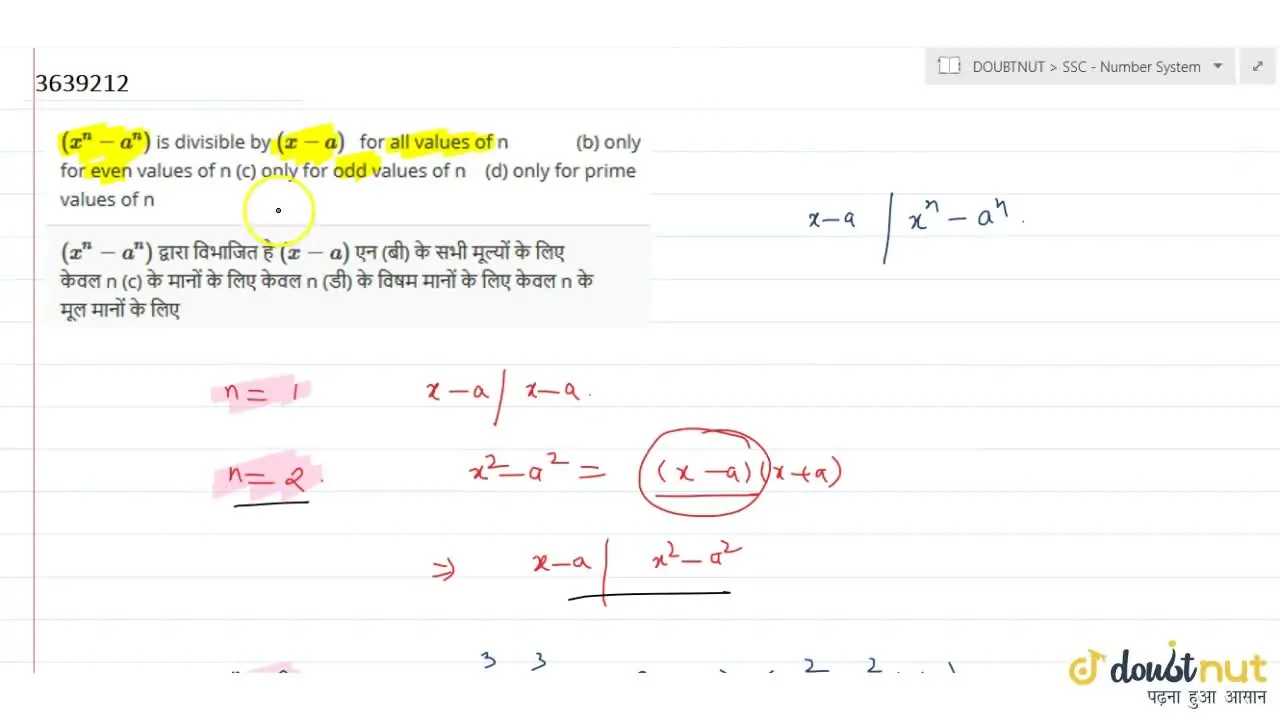(xn−an) is divisible by (x−a) for all values of n (b) only for even values of n (c) only for odd values of n (d) only for prime values of n
Step by step video & image solution for (x^n-a^n) is divisible by (x-a) for all values of n (b) only for even values of n (c) only for odd values of n (d) only for prime values of n by Maths experts to help you in doubts & scoring excellent marks in Class 14 exams.
Related Playlists
Similar Questions
If 44! is divisible by 3n then maximum value of n
View SolutionThe value of C(n+1,n) is
View SolutionIf n!−n=n, then the value of n is :
View SolutionIf n!−n=n, then the value of n is :
View SolutionFor all values of n.N(n+1)(n+5) will be divisible by
View SolutionConsider the following statements: For any positive integer n, the number 10n−1 is divisible by 9 for n = odd only (2) 9 for n = even only 11 for n = odd only (4) 11 for n = even only Which of the above statements are correct? 1 and 3 (b) 2 and 3 (c) 1 and 4 (d) 2 and 4
View SolutionIf 10n+3.4n+K is divisible by 9 for all n∈N then the least value of K is
View SolutionIf 32n+2−8n−k is divisible by 64 for all n∈N , then the least integral value of k is
View SolutionFor all values of n, ( n3 - n) (n+2) will be exactly divisible by?
View SolutionNumber of values of n∈N for which n4+4 is prime is
View Solution


